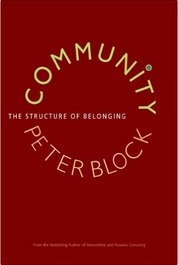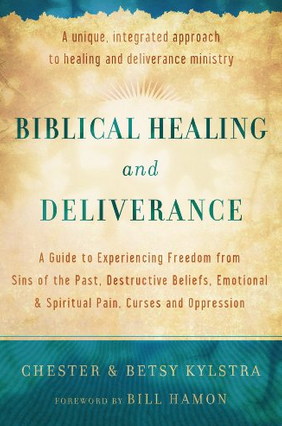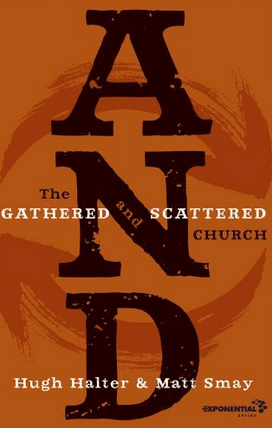 Community: The Structure of Belonging
Community: The Structure of Belonging
by Peter Block
This book is a gold mine of practical insights that will assist churches in their quest to bring kingdom transformation to our communities. This summary contains some of the key thoughts that impacted me. In some cases, I will simply use quotations from the book and let them speak for themselves. Block has brought together the thinking of several key people in the area of community development and transformation, which makes it all the more valuable and a real time saver.
The Gallup organization’s Strengthsfinder assessments, which identify individuals’ key strengths, are extremely beneficial for team building. The premise is that we can achieve more as a team and as individuals by focusing on our strengths and relying on team members to function in areas where we have weaknesses. Block quotes John McKnight:
“…the act of labeling [people as to their limits or deficiencies]…is what diminishes the capacity of people to fulfill their potential. If we care about transformation, we will stay focused on gifts, to such an extent that our work becomes simply to bring the gifts of those on the margin into the center.” (p.13)
The Bible calls this “encouragement,” whereby we use faith and prophetic insight to identify and activate what God has put into people, without feeling the need of pointing out what is missing in the individual. The Law points out our deficiencies, but grace is always faith and gift based. God made each person to bring glory to himself, and no one should be denigrated.
Block writes: “This is in no way a denial of our limitations, just a recognition that they are not who we are. I am not what I am not able to do. I am what I am able to do, my gifts and capacities.” (p.140)
I am convinced that we sometimes err by trying tell people what they can or cannot do by placing labels on them from the top down. Instead we should encourage people to follow God and step out in faith. The top-down model of leadership is a bottleneck for the move of God’s Spirit. None of us who are in leadership are immune from this tendency to control. Instead of trying to label and categorize people up front, why not reserve that until later, if we like, more as a matter of looking back and celebrating the work of God’s grace in their lives.
Block lists five strategic principles that can lead to true transformation in our communities. (pp.30-31)
- The essential work is to build social fabric. When citizens care for each other, they become accountable to each other. This is nothing new. When we put a face on a need, it becomes personal and we cannot ignore it any longer. We have always known that relationship building is a big key, but when it comes to planning, we usually revert to what we have always done by limiting input to a small core of leaders, which effectually works to break down the relationships we so long for among the rank and file. Unless people have a sense of ownership, they are not as likely to commit themselves.
- Strong associational life is essential and central. Creating connectedness becomes both the end and the means. Associational life is a volitional aspect of community – how citizens choose to build connections for their own sake, usually for a common purpose. This is in contrast to forced participation based on pay, retribution, censure, or exclusion.
- Leaders who use their power to convene “citizens” are able to create an alternative future. Unless citizens [church members] take ownership of the process, it is likely that nothing transformational will take place. Citizen participation and ownership is more important than decisions by institutions and formal leadership.
- The small group is the unit of transformation. It is the place where people’s uniqueness can be valued and engagement takes place. We must set aside the demands of scale and speed in interest of building relationally.
- All transformation is linguistic. If we want to change the community, we must change the conversation. The conversation is directed by the leader or convener who is able to ask the right questions to lead people to engage and take ownership.
Block contrasts what he calls the patriarchal, corporate, top down, or retributive justice mindset that focuses on problem solving, blame casting, and punishment to the transformative mindset that focuses on possibility [faith], generosity [grace and hospitality], and gifts [our using what God has put in us]. The former mindset seeks to control the future and make it an extension of the past and present; whereas, the latter is not afraid to embrace the possibility of very different future. I found that Block’s thoughts in this area are quite instructive and illuminating regarding the nature of faith.
Regarding the role of leadership, he writes:
“The search for great leadership is a prime example of how we too often take something that does not work and try harder at it. I have written elsewhere about the reconstructing leader as social architect. Not leader as a special person, but leader as a citizen willing to do those things that have the capacity to initiate something new in the world.” (p.86)
“The core task of leadership is to create the conditions for civic and institutional [church] engagement. They do this through the power they have to name the debate and design gatherings.” (p.86)
Later in the book, Block shows how asking the right questions can lead people into taking ownership rather than continuing in the consumerist-entitlement mindset in which we expect others to take care of things on our behalf. This is where the book is truly ingenious. I will not try to explain how it is done, just whet your appetite.
“This [view] is very different from the conventional belief that the task of leadership is to set a vision, enroll others in it, and hold people accountable through measurements and reward…[which] creates a level of isolation, entitlement, and passivity that our communities [churches] cannot afford to carry…The world does not need leaders to better define issues, or to orchestrate better planning or project management. What it needs is for the issues and the plans to have more of an impact, and that comes from citizen [church member] accountability and commitment.” (p.87)
But lest you think this happens through pressure from the top down, it does not. I will not spoil your joy of discovering his breakthrough thinking on this matter by revealing it here. You need to read the book!
One of Block’s chapter titles is “Questions Are More Transforming than Answers.” He writes:
“The future is brought into the present when citizens engage each other through questions of possibility, commitment, dissent, and gifts. Questions open the door to the future and are more powerful than answers in that they demand engagement. Engagement is what creates accountability. How we frame questions is decisive. They need to be ambiguous, personal, and stressful.” (p.101)
If this does not pique your curiosity, this is not the book for you!
“The point is that the nature of the questions we ask either keeps the existing system in place or brings an alternative future into the room.” (p.104) “
[Improper questions are] a response to the wish to create a predictable future. We want desperately to take uncertainty out of the future. But when we take uncertainty out, it is no longer the future. It is the present projected forward. Nothing new can come from the desire for a predictable tomorrow.” (p.105)
Is that not a clarion call to living by faith?
Block writes:
“We have to realize that each time people enter a room, they walk in with ambivalence, wondering whether this is the right place to be. This is because the default mindset is that someone else owns the room, the meeting, and the purpose that convened the meeting…The leader/convener has to act to change this…The intent is to move the social contract from parenting to partnership.” (p.128)
I believe that Block is getting at the heart of the difference between grace and legalism. Legalism has always elevated leaders over the people, something that Jesus taught against by saying that the greatest leaders are the servants of all. Grace elevates everyone to be kings and priests and ministers. If the Spirit of the Lord is going to accomplish through his church everything he desires, our leadership mentality must change even more than it has.
Unless we engage people in such a way that motivates them to take responsibility to obey God, use their gifts, and fulfill their callings, the church will remain dormant. Unless we leaders abandon the codependent and consumerist desire to have people constantly need of us, we are not going to bring in an alternative future. Block is giving us some wonderful keys to help this happen, if we are willing to learn and put his principles into practice.
The last part of the book shows how leaders can bring people together and ask the right questions to help people engage, take ownership, and commit themselves to work in partnership to see something new take place. Even though this is a “secular” book, it is chock full of biblical truth and well worth a careful study.



